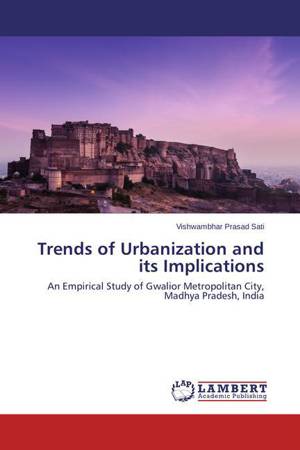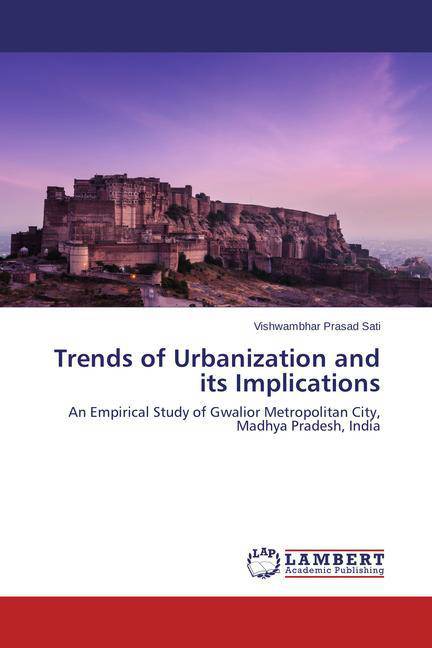
- Afhalen na 1 uur in een winkel met voorraad
- Gratis thuislevering in België vanaf € 30
- Ruim aanbod met 7 miljoen producten
- Afhalen na 1 uur in een winkel met voorraad
- Gratis thuislevering in België vanaf € 30
- Ruim aanbod met 7 miljoen producten
Zoeken
Trends of Urbanization and its Implications
An Empirical Study of Gwalior Metropolitan City, Madhya Pradesh, India
Vishwambhar Prasad Sati
Paperback | Engels
€ 44,95
+ 89 punten
Omschrijving
Urbanization is a process of urban growth due to shift of population from the rural areas to cities and natural growth of population within the cities. It has multiple implications on socio-economic development and environmental degradation. As cities spread in its surrounding areas, economic activity increases. Gwalior metropolitan city is the major centre of cultural, educational and socio-economic development in the central India. Along with its socio-economic importance, the city is passing through the menace of all forms of environmental pollution. Thus, the environmental and health quality is critically low. This study examines all aspects of population growth, socio-economic development and environmental implications of urbanization in Gwalior. A case study of slums in Gwalior was conducted and suggestions are given for optimal development of Gwalior metropolitan city.
Specificaties
Betrokkenen
- Auteur(s):
- Uitgeverij:
Inhoud
- Aantal bladzijden:
- 88
- Taal:
- Engels
Eigenschappen
- Productcode (EAN):
- 9783659617829
- Verschijningsdatum:
- 8/10/2014
- Uitvoering:
- Paperback
- Afmetingen:
- 150 mm x 220 mm
- Gewicht:
- 141 g

Alleen bij Standaard Boekhandel
+ 89 punten op je klantenkaart van Standaard Boekhandel
Beoordelingen
We publiceren alleen reviews die voldoen aan de voorwaarden voor reviews. Bekijk onze voorwaarden voor reviews.








